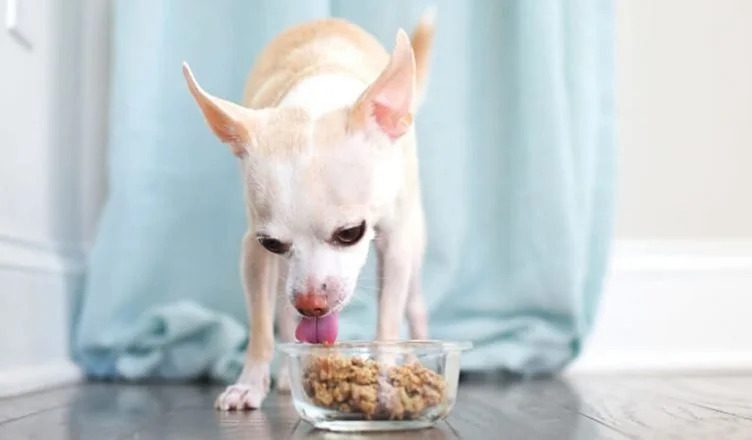You know how your little puppies are always overexcited about eating. Throw them a biscuit and they’ll show their gymnastic skills to catch the treat mid-air. Their eyes bulge with happiness and their expressions are in fact a sight to capture! But is your dog’s hyper excitement a health concern? Especially when it is followed by bouts of hiccups? Can dogs get hiccups from eating too fast? Is it even normal?
Let’s put this in a simple way: Dogs can get hiccups from eating too fast and it is as normal as it is to humans. We’ve mentioned everything you need to know about your pup getting hiccups while eating too fast in this article. Continue reading to know more.
You might also be interested in Can Dogs Get Hiccups?
How Can My Dog Get Hiccups from Eating Too Fast?
Dogs get hiccups when their diaphragm contracts just like their human counterparts. There are numerous reasons as to how their diaphragm contracts lead them to produce spasmodic episodes. For one, with all the joy of eating their food rapidly, your dog tends to swallow a lot of air while eating. This makes the nerves in the diaphragm react, so your dog will feel the urge to hiccup. So, this makes it possible for your dog to get a hiccup while eating too fast.
What Can I Do to Prevent My Dog’s Hiccups?
Your eager, energetic dog that’s guzzling down their food or water needs to obviously slow down.
Here are 5 ways to prevent hiccups in dogs:
- Stretch your pup’s mealtime a little longer. Feeding your dog in slow dog food feeders can help slow down your pup’s fast eating habits.
- Give water. Just like humans, drinking water can help with hiccups. When you see your four-legged friend hiccupping, make sure you provide them enough water.
- There are also different levels or heights of water bowls that dispense water slowly and easily. You can use these water bowls for slower water intake which helps in less air intake. Hence, reduces the chance of hiccups.
- Try reducing the portion size of your dog’s food by giving them smaller portions throughout the day rather than two heavy meals.
- Calm your dog’s spasmodic breathing by giving them a soothing chest rub. It can help their breathing process to be steady so that the hiccups can subside.
What If My Dog’s Hiccups Persist?
Hiccups aren’t too much of a worry. But when they last for more than 48 hours, they may be signs of critical health diseases according to research. And if your dog’s hiccups turn to sneezing, runny nose, coughing, bloody stools, or difficulty in breathing, then it is high time that you take them to the veterinarian.
The vet will take a thorough history of your pet, noting specific details like when and how the problem starts, how long the bouts last, and if the pup only hiccups while eating too fast. They will also conduct a physical examination, including x-rays of the chest and abdomen.
In some rare cases, some health conditions like reverse sneezing and focal seizures can be mistaken for hiccups. For this, the vet will record the episodes of hiccups over several days. This recording will then help to finalize the real reason behind your pup’s irregular episodes.
Also, check out Can Dogs Get Hiccups When Sleeping?
Conclusion
Overexcited dogs, especially puppies become hyperactive when it comes to food. They cannot wait to gobble down what’s provided in their meal bowl. It might be adorable to watch your pup being excited about their food, but it is as saddening to see them fall victim to the bouts of hiccups. For the most part, hiccups tend to go away on their own but you can always slow down your pup’s eating habit to prevent such spasmodic breaths. And if the hiccups persist for several hours, it’s time to schedule an appointment with the vet.
Thank you for reading the article.
To explore more, check out other hiccup-related dog articles that you might be interested in.
Is your dog a speedy-eater? How do you slow down their eating habit? Has your dog ever had hiccups after eating too fast? We would love to hear from you. Please share with our community by leaving a comment below!
